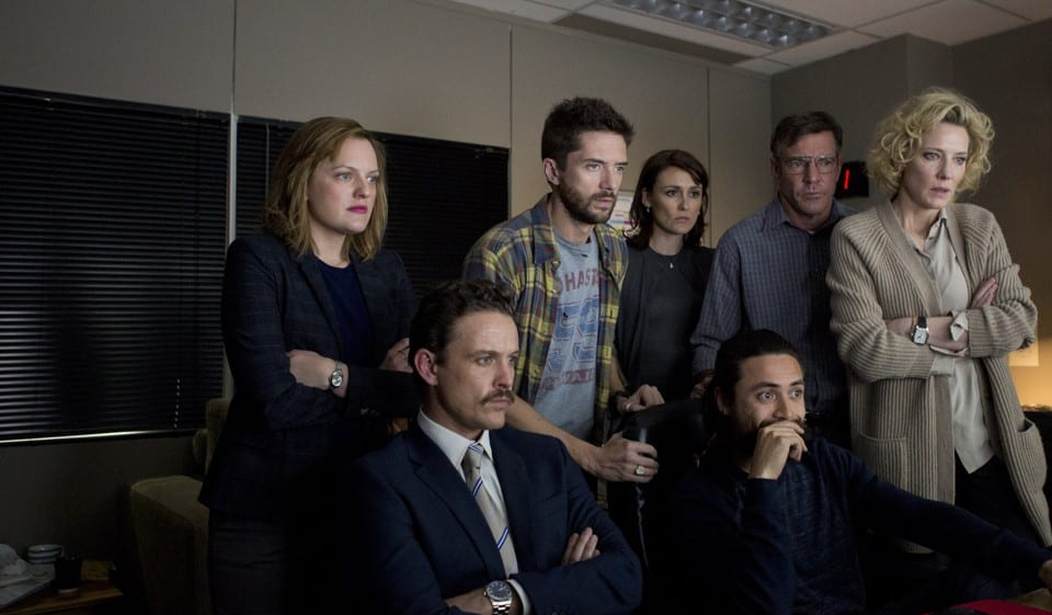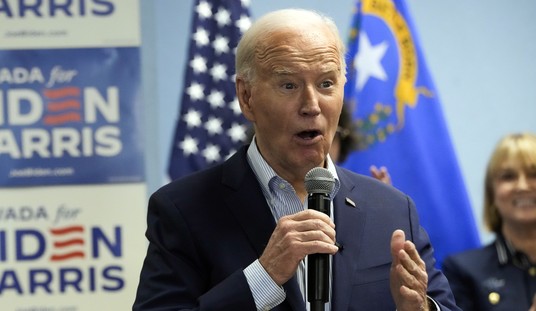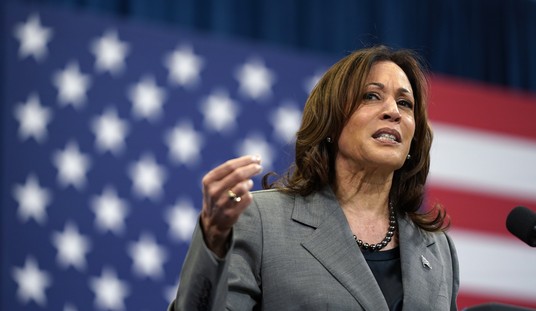I do wonder why people would not want to go see a movie that tries to make heroes of journalists who straight-up lied in order to tank a political campaign.
Sony Pictures Classics “Truth,” which recounts CBS’ reporting on President George W. Bush’s military service, expanded to 1,120 theaters, but couldn’t even crack $1 million. It earned just $901,000.
The problem with the movie is that it attempts to portray Dan Rather and Mary Mapes as the underdogs, victimized by Corporate America and changing newsroom dynamics, as well as probably the Vast Right Wing Conspiracy. Rather and Mapes to this day contend the story was true, even if the documents used as the basis of the story were inaccurate.
There are two essential rules to journalism. Of course, the media doesn’t follow these rules anymore, but they are two essential rules nonetheless: 1) Verify your facts. 2) Report the story. Don’t become the story.
Mapes and Rather violated both of these rules in the production of the now-infamous 60 Minutes segment. The segment was debunked online within 24 hours, signaling the official rise of the online media to prominence in news reporting (to be fair to Matt Drudge, the revolution began during the Clinton years and the Lewinsky scandal, but he was a catalyst, while the so-called “Rathergate” was fruit of his efforts).
Rather and Mapes had a story and ran it. There was no vetting of the documents. There was no vetting of the source. They broke rule number one. It was an all-out attack on an incumbent president during an election cycle at a time when the Democratic candidate was being attacked for his service in the military. It was a tit-for-tat strike, one that was built entirely around the premise of finding something similar to hit George Bush with.
That led to rule number two. The moment the documents were debunked (whether or not the story was real is irrelevant) the story went from being about Bush to being about Rather, Mapes, and CBS. Rather and Mapes publicly and frequently defending the debunked reporting, and the story grew as it became more and more about them. CBS had little choice to save themselves but fire the two.
As far as how “good” the movie is, here are some of the reviews*. Via The A.V. Club:
Truth is fascinating and often exciting. But the film lacks the qualities of great drama that make it feel like it’s unfolding right in front of the audience. Instead it has well-known actors in costumes, reciting talking points. No one can complain that Truth buries the lede. It’s all lede.
This is, alas, of a piece with Truth, one of the worst films about journalism (and there have been plenty of bad ones) to come down the pike in a long while. The movie loudly, hectoringly stresses the importance of always “asking questions”—my notes include, among others, the lines “Questions help us get to the truth,” “You stop asking questions, that’s when the American people lose,” and “You’re supposed to question everything, that’s your job”—and yet the very quality it celebrates in its protagonist is that she never questions whether or not her reporting might have been wrong. This is a film in which acknowledging error is treated as some terrible surrender and betrayal of trust; in actual journalism, it’s considered a moral obligation—one that, sadly, most people in the field have had some experience with, in one capacity or another.
And, lastly, Vulture:
CBS has strongly contended that Truth is anything but, and my hunch is that the film’s presentation of Mapes and Rather as beleaguered underdogs fighting against craven suits is a trifle skewed. Rather at the time could get anything and everything he wanted, and his threat to give the documents to newspapers if the story didn’t air at once is dramatized as a mark of high principle instead of high dudgeon possibly influenced by his altercation with “Poppy” Bush a decade earlier. […] Mapes contends in her book and Mike Smith in a rant onscreen that the media conglomerate Viacom (which then owned CBS) threw them under a bus because billions were at stake in Washington, where Viacom vigorously lobbied for favorable action on “media ownership rules, debt structure, a variety of cable issues, and leniency in television (particularly cable) decency standards.” CBS saw and still sees itself as having been bullied by its highest-paid newsman and his aggressive cohorts into airing a poorly sourced story.
*It is important to note that all of these reviews come from left-leaning publications.













Join the conversation as a VIP Member